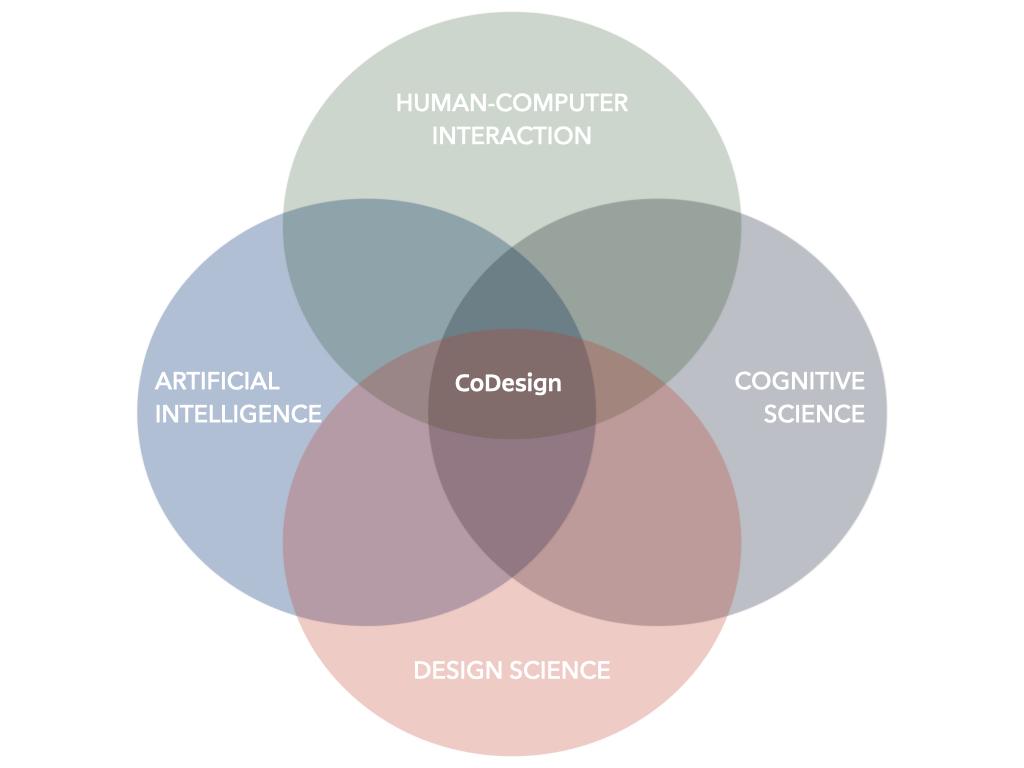CoDesign Lab
Artificial and Human Intelligence.
CoDesign is
CONFLUENCE: its a confluence of research areas advocating for an interdisciplinary mindset and methodology aimed at advancing the theory and practice of Human-Centred Artificial Intelligence. Primarily, we pursue systematic computational modelling and behavioural research into facets of human behaviour and decision-making in everyday, naturalistic settings.
With a central focus on Artificial and Human Intelligence, we pursue human-centric,
socio-technologically motivated opportunities where basic research in
AI and Spatial Cognition, and Technological Artefacts emanating therefrom,
ought to demonstrate their scientific impact, application, and societal significance. Ethico-legal compliance of AI technologies within the framework of emerging AI regulations is a central guiding-force.


